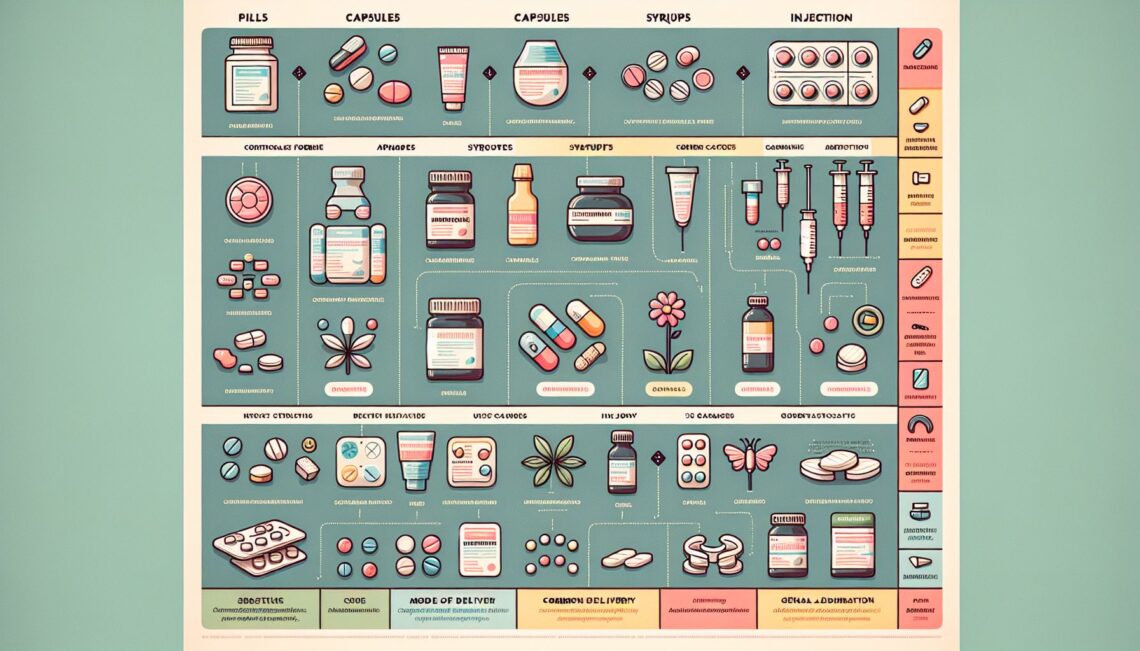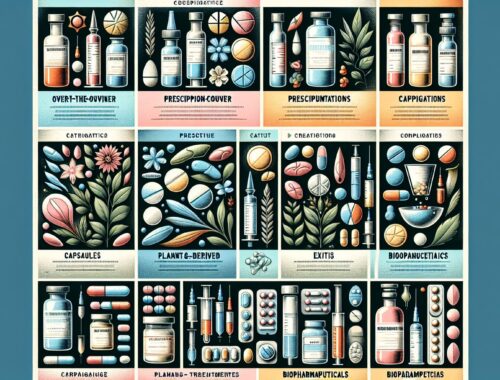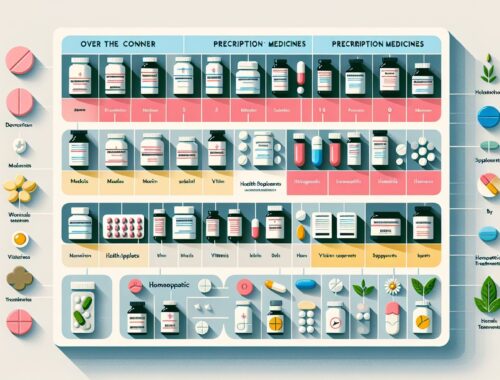
Understanding the Different Types of Medicines
Medicines play a vital role in maintaining and improving our health. From relieving pain to combating infections, medicines help us recover from various ailments. However, not all medicines work in the same way or for the same purpose. In fact, medicines come in different types, each serving a unique function. In this article, we will explore the different types of medicines and their respective uses.
I. Over-the-counter Medicines
Also known as non-prescription drugs, over-the-counter (OTC) medicines are readily available without the need for a doctor’s prescription. These medicines are typically used to relieve minor ailments such as headaches, sore throat, or allergy symptoms. OTC medicines are safe and effective when used as directed, and people often rely on them for self-treatment.
II. Prescription Medicines
Prescription medicines, on the other hand, require a valid prescription from a healthcare professional. These medicines are typically used to treat more severe or chronic conditions that need careful monitoring. Doctors prescribe these medicines after evaluating the specific needs and medical history of the patient. Prescription medicines can be in the form of pills, liquids, injections, or even topical treatments.
III. Antipyretics and Analgesics
Antipyretics are medicines that reduce fever, while analgesics are medicines that relieve pain. These medicines work by targeting the specific symptoms without treating the underlying cause. Common antipyretics include acetaminophen and ibuprofen, which help reduce fever and discomfort. As for analgesics, they can be categorized into non-opioid analgesics like aspirin and opioid analgesics such as codeine or morphine, which provide stronger pain relief.
IV. Antibiotics
Antibiotics are medicines used to treat bacterial infections. They work by either killing the bacteria or stopping their growth. However, it is crucial to note that antibiotics are only effective against bacterial infections and not viral infections like the common cold or flu. It is essential to use antibiotics as prescribed by a doctor to avoid misuse, which can lead to antibiotic resistance.
V. Antidepressants
Antidepressants are medications primarily used to treat depression and its associated symptoms. They work by balancing the brain’s chemicals called neurotransmitters, responsible for mood regulation. Antidepressants can also be used to treat other mental health conditions, such as anxiety disorders, obsessive-compulsive disorder (OCD), and post-traumatic stress disorder (PTSD). It is important to take antidepressants under the close supervision of a healthcare professional.
VI. Vaccines
Vaccines are essential in preventing various contagious diseases. They work by preparing the immune system to fight specific infections. By introducing a small, harmless part of the disease-causing agent, vaccines stimulate the production of antibodies, which effectively protect against future infections. Vaccination has been proven to be one of the most successful and cost-effective ways to prevent diseases like measles, polio, and influenza.
VII. Antacids
Antacids are medicines used to neutralize stomach acid and provide relief from heartburn and indigestion. They work by increasing the pH level in the stomach, reducing the acidity that causes discomfort. Antacids can be found in various forms, including tablets, liquids, and chewables. However, it is important not to overuse antacids, as long-term use can lead to other digestive issues.
In conclusion, understanding the different types of medicines is crucial to ensure safe and effective treatment. From OTC medicines for minor ailments to prescription drugs for chronic conditions, each type serves its own purpose. Whether you’re treating a fever, fighting an infection, or managing mental health, it is always essential to consult a healthcare professional and use medicines as directed. By doing so, we can optimize the benefits of medicines while minimizing potential risks, leading to better overall health and well-being.
You May Also Like

The Different Types of Medicines
January 2, 2024
Understanding the Different Types of Medicines
December 18, 2023

